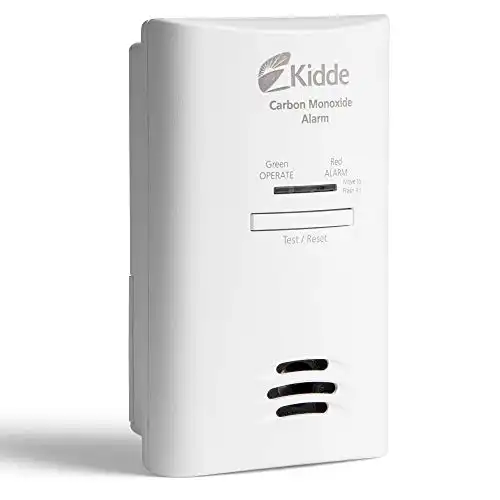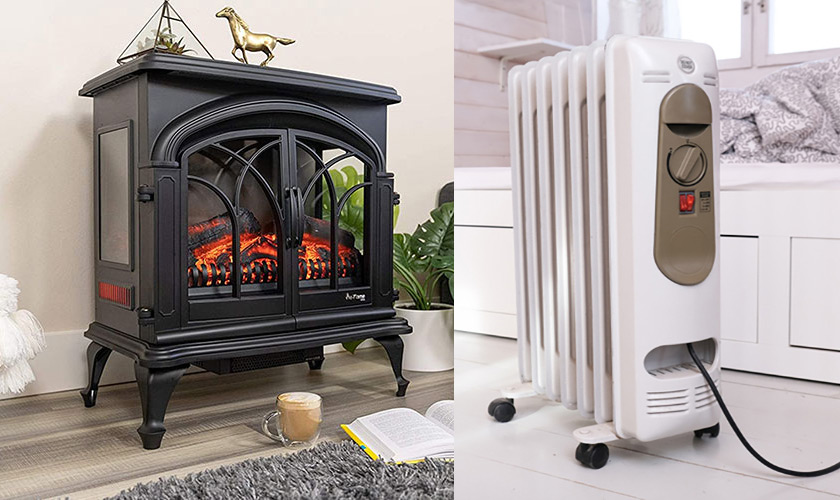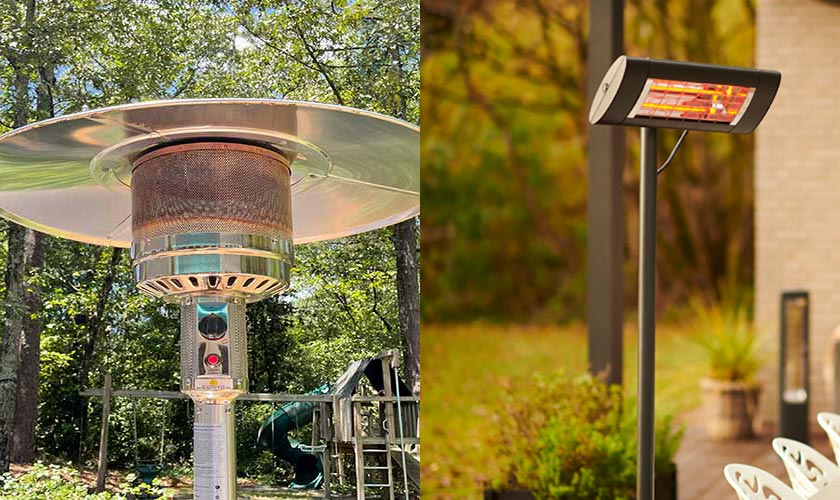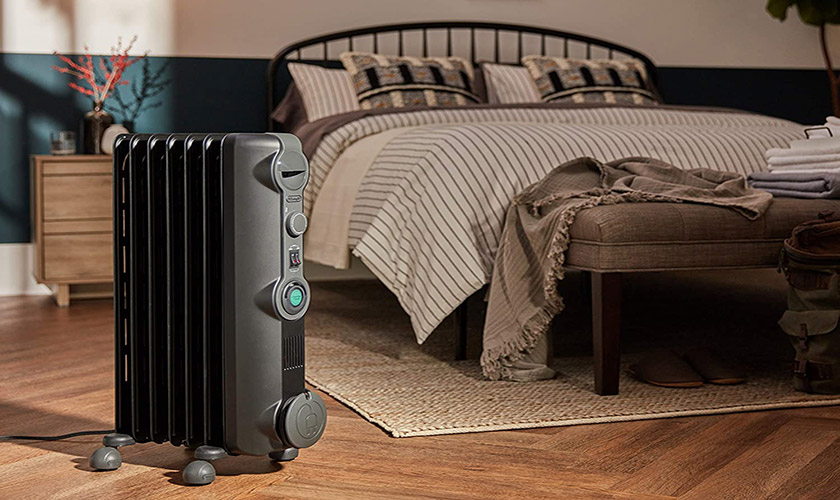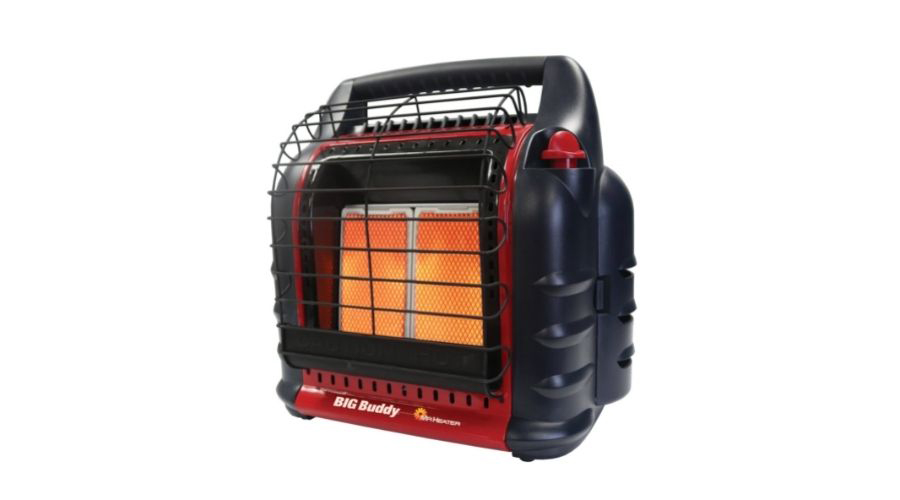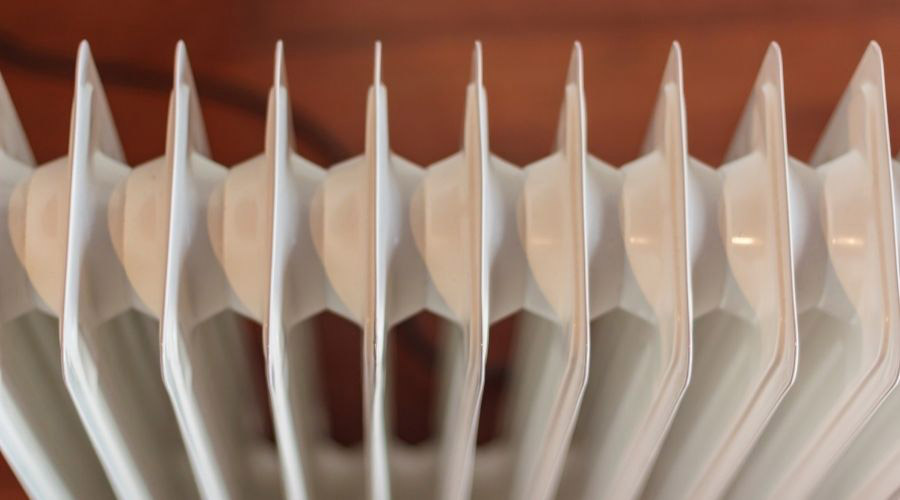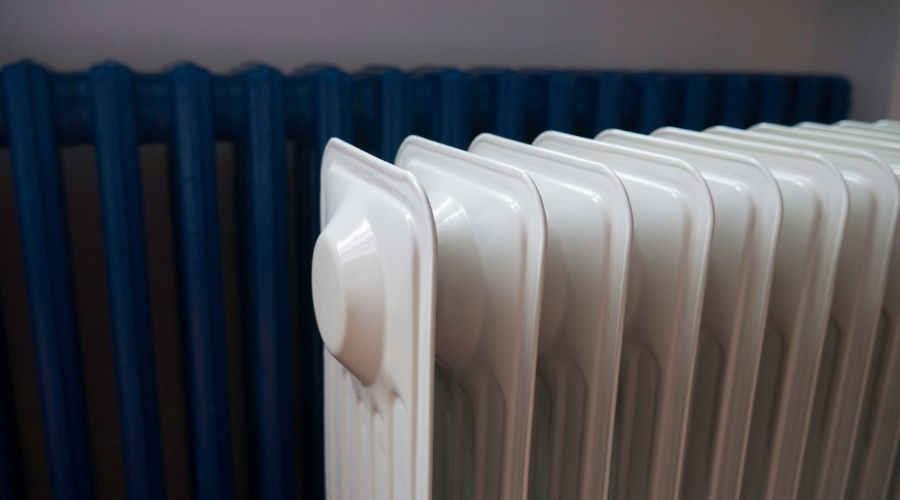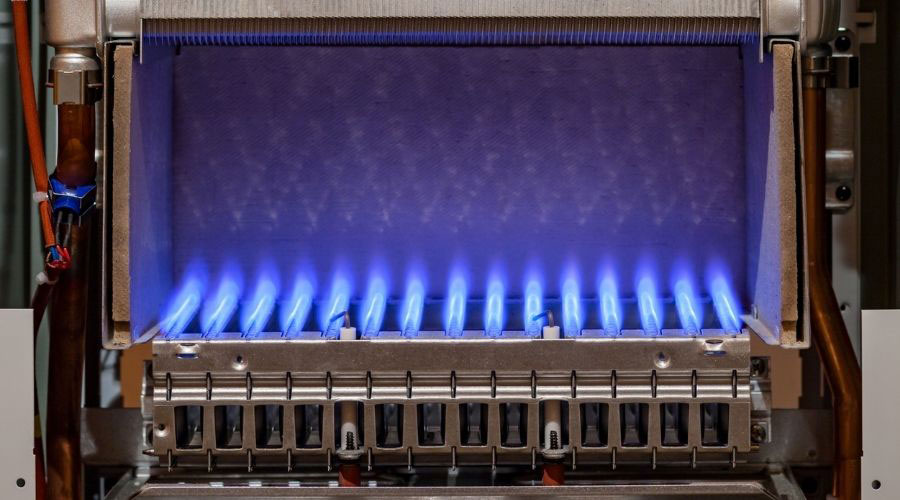
As one of today’s most popular heating choices in the United States, propane is alternative energy available form. It is a versatile fuel used for cooking, heating, and heating water in your home.
Propane heaters can last 5 to 15 years depending on the heater unit, use, maintenance, and how it is stored when not in service. How long the propane will last depends on the size of the tank.
If you have a 20-pound propane tank, it can run for 10 hours. A 15-pound tank can run for 18-20 hours. The lifetime of propane gas itself is indefinite.
Heaters that run on propane can be portable or installed in your home. Both have advantages and disadvantages. Portable heaters have also become famous for heating patios. The speed at which propane burns depends on its size and BTUs (British Thermal Units). So how long can propane heaters last?
How Long Does A Propane Tank Last?
It is essential to calculate the BTUs your home needs. If you have a heater with a few BTUs, it can run for a long time, but leave your house at a cold temperature.
You might not want to spend money on a heater with a large number of BTUs, especially for smaller rooms, as the more significant number of BTUs can overheat the room and leave it stuffy.
If the BTU number is too high or too low, it will waste power and energy, doubling your bills.
Most propane heaters come with a helpful chart showing how many BTUs you need for the space. If the heater doesn’t have a diagram, you can search online for examples or ask a professional.
The lifetime of a tank depends on its size and use. Tanks can come in sizes from 15 pounds up to 100 pounds. Some tanks are free-standing, while other larger tanks may be buried underground.
For heating, the average use is from 6 to 8 gallons of propane for one heating season. A heater run by propane will last from 18 to 20 years. If propane is used to heat water, an average of 300 to 400 gallons will be used in a year.
Cooking
If used for cooking, a tank of 20 pounds will run for around 20 hours if the grill’s fire is set on medium. Larger grills will burn propane in approximately 10 hours.
Furnace Heating
In average homes, the heater will burn one gallon of propane in one hour. For heating, a heater for the entire house runs on approximately 100,000 BTUs, and one gallon equals 92,000 BTUs.
It isn’t easy to calculate how long the tank will last for heating. It depends on BTUs, size, gallons, and how often you turn on the heating. But you can calculate yourself the approximate heat produced and burn rate.
How To Calculate The Amount Of Heat You Need?
Calculating the burn rate is very important when you’re buying a heater. We measure heat production in BTUs (British Thermal Units). You can also find more specific information with this BTU calculator.
A propane heater’s lifetime depends on how many BTUs it produces, the square footage of space it is heating, and the outside temperature.
Calculation Example
Let’s say you have a space of 1,000 square feet with an 8-foot ceiling. That means that you need to heat 8,000 cubic feet of space. If the outside temperature is around 30°F and you want it to be 70°F in your room, the temperature change is 40°F.
Using a formula in which we multiply the temperature change by the cubic feet of space and the number .133, you get the number of BTUs you need. In this case, you will need 42,500 BTUs to have a temperature of 70°F in your room.
A standard 20-pound cylinder has around 430,000 BTUs. Every gallon has approximately 91,500 BTUs, and each pound has about 21,600 BTUs.
So, to heat a 1000 square foot room, a 20-pound propane heater can run for 10 hours. Propane usage varies based on other accounts. The amount of propane you need depends on:
- How well the room is insulated
- How the temperature changes outside
- The size of the room
Patio Heating
The most challenging factor in the calculation is heating the patio. The space is not closed, so the outside elements impact the heating. Patio heaters produce around 40,000 BTUs per hour. A 20-pound heater will provide heat for 10 hours.
Let’s say you have a living room that is 330 square feet with an 8-foot ceiling. We want the temperature change to be 30°F. You would need 10,500 BTUs to keep the temperature at the level you want it. If you have a 15lb propane heater, it can run for 30 hours.
This room is much smaller than the 1,000 square feet room, so the heat spreads quickly. For a small living room, a 20lb propane heater can run for 40 hours.
A 30lb propane heater can run for 60 hours in this living room while running for 15 hours in a 1,000 square foot room.
When buying a heater, the higher the number of BTUs, the higher the heat output. That doesn’t necessarily mean you need the highest number of BTUs for a 330 square feet living room.
Specific square footage has a recommended BTU number. For square footage around 300, the recommended amount is 8,000 BTUs, and for a bigger space of 1,000 square feet, the recommended amount is 21,000 BTUs.
| SQUARE FEET (AREA) | BTUs RECOMMENDED |
|---|---|
| 100-150 sq. ft. | 5,000 |
| 150-250 sq. ft. | 6,000 |
| 250-300 sq. ft. | 7,000 |
| 300-350 sq. ft. | 8,000 |
| 350-400 sq. ft. | 9,000 |
| 400-450 sq. ft. | 10,000 |
| 450-550 sq. ft. | 12,000 |
| 550-700 sq. ft. | 14,000 |
| 700-1,000 sq. ft. | 18,000 |
| 1,000-1,200 sq. ft. | 21,000 |
| 1,200-1,400 sq. ft. | 23,000 |
| 1,400-1,500 sq. ft. | 24,000 |
| 1,500-2,000 sq. ft. | 30,000 |
| 2,000-2,500 sq. ft. | 34,000 |
What Affects The Longevity Of Propane Heaters & How To Prolong It?
Propane is a substantially cheaper alternative, especially compared to electric heat. Propane is not harmful, suggesting that it does not omit anything unpleasant into the atmosphere.
One of the easiest and most efficient ways to heat your house is to use propane. In most situations, propane systems need nothing more than regular maintenance and annual fill-ups to sustain their optimum year-round performance. But there are some things you need to consider during wintertime.
The propane freezes at temperatures of -306 °F, which is not a problem we face anywhere on earth. Colder temperatures, however, force the amount of liquid propane to shrink, which can lower a tank’s inner pressure. Gauge readings can be distorted by low internal stresses, making them read less fuel than there is.
1. Keep Your Tank Full
It isn’t difficult to avoid pressure changes in a propane tank. The first thing you can do is keep your tank full. If there is a greater volume in the tank, it will be more resistant to shrinkage. You can improve the heater’s efficiency if the filter on your heating system is replaced monthly.
2. Get Rid Of Dust
If dust accumulates inside a propane heater, it will stop lighting and heating the room. There is a sensor in the heater that will prevent it from lighting up for safety reasons. You can easily clean the dust and ensure that the heater works properly.
To clean it, first, ensure the heater is turned off. Use a vacuum cleaner to collect all the dust and dirt outside.
You can also use the vacuum to clean the vents and grids of a heater. For delicate areas, you can use a painting brush to clean the dust off. This method is best used on the igniter and flame areas.
You can remove the cover panel and clean the inside with a cloth soaked in warm water. Make sure it’s scorched before putting it back. Vacuum the insides of the heater as well. If you can spot the oxygen sensor, clean it with a brush.
3. The Heater Is Low In Propane
Propane heaters have a common issue: the motor will run when you start the heater, but the fire doesn’t ignite. Usually, the igniter wire is disconnected, or you need to replace the igniter itself.
The propane supply is running low if you see a spark but the fire is not lighting. In all cases, the first thing you should do is call a professional to inspect the heater.
4. Clean The Pilot Feed Tube
About one inch in height, a stable flame exhibits a bluish shade. A shorter fire, or yellow or orange, typically means that you need to clean the pilot tube. You may need to get the heater serviced if you cannot keep the fire lit, with no draft in the room.
You can prolong the lifetime of a heater by maintaining it correctly. Once a year, you should clean the pilot feed tube. This tube leads the propane to the pilot, where the fire emerges.
You get to the pilot tube by removing the mesh screen on the control panel. You will see a copper tube going up to the cylinder. You need to release the screws on the cylinder to allow the line to come out.
A brass filling is at the end of a tube, which you can also unscrew and place in a small bowl with hot water. Let it sit in water for 5 minutes to remove all blockages. Please remove it from the bowl and let it dry completely. Screw it back on the tube and put it all back together.
5. Clean The Heater’s Exterior
You can clean the outside of the heater using a damp cloth and a mild cleaner. You can also put a coat of automotive paste wax on the surface to prevent oxidation.
Outdoor heaters powered by propane use portable cylinders, which require specific regulations and safety measures. Propane cylinders should never be stored indoors and should be stored in a well-ventilated area.
They should be at least 20 feet away from heaters that are running. Also, never lay the cylinders so they are facing downwards. The valve should always be facing up.
How To Remain Safe While Using Propane Heaters
While propane heaters have many benefits, you must be cautious when using them. Portable propane heaters are excellent for heating small rooms. But propane heaters can cause a carbon monoxide hazard if the room is not adequately ventilated.
1. Provide Enough Ventilation & Space
Also, if the room is tiny, open the windows regularly. Propane heaters use oxygen to burn and can burn oxygen very quickly in small spaces.
If your entire heating system at home is powered by propane, you need to take extra care of it. Tanks need a lot of space around them.
2. Do Not Cover Your Heater With Anything
Be sure not to cover them up with anything or stack items on top of them (incredibly flammable items). Don’t keep things such as newspapers near the heating system inside the house.
3. Install Carbon Monoxide Detectors
It is best to install carbon monoxide detectors with smoke alarms. Carbon monoxide has no color and is odorless. It would be best if you had some alarm that would tell you it is present in higher levels.
4. Read The Manual
The best way to take care of the propane heater is to read the manufacturer’s manual. These manuals also come with instructions on what to do in hazardous situations.
5. Turn It Off If You Suspect A Leak
You will notice a propane leak by its distinctive smell. Many people have described the natural smell of propane as rotten eggs or a decaying animal. If you think there is a leak, turn off any flames, put away your phones and leave the house.
6. Ensure You’re Using The Proper Heater
The most common mistake is using an outdoor propane heater to heat the inside. All propane heaters have different uses.
You must be careful to buy the correct type of heater because propane heaters designed for the outdoors will have a bigger BTU, which is unsafe for the inside.
Propane heaters designed to heat the indoors have an auto shut-off system, which will turn off the heater if it is tipped over. It will also automatically shut off if it detects that oxygen is low.
7. Don’t Leave Your Heater Alone
You should never leave a propane heater on when you sleep or are away. If you’re away from the heater, you risk great danger by leaving it on. Also, you will preserve fuel and save a lot of money by turning it off.
8. Smelling Gas Is Bad News
If you smell gas, do not light the heater. As mentioned before, propane has a distinct smell that everybody is familiar with, and when changing propane cylinders and lighting the heater, you should take caution. Manufacturers of heaters have particular guidelines for modifying propane tanks.
What Are The Benefits Of Propane Heaters?
One of the propane’s most significant advantages is that it is non-toxic, which means it can bury the tanks underground. Propane heaters burn cleanly, too.
1. Lasts Longer & Less Maintenance
Usually, they last longer and need less maintenance along the way, and they often perform at a much higher level of quality.
2. Everything In Your Home Can Run On Propane
Another advantage is that you can run all equipment in your house on propane. You don’t need to settle for an electric stove or a water heater. Each appliance can be powered by propane, and you can opt-out of the more costly and less powerful electrical alternatives.
3. Order It In Bulk For An Inexpensive Price
As the propane tank can hold up to 1,000 gallons, you can order an enormous amount of propane when the prices are low.
Low prices usually happen in the summertime, when it’s not the heating season. When the propane price is down, you can fill your tank and be ready for winter.
4. Does Not Emit Greenhouse Gases
When used as a replacement for other fuels like gasoline or petroleum, propane lowers the number of greenhouse gasses such as carbon dioxide or contaminants such as carbon monoxide and nitrogen oxide.
5. Relatively Inexpensive
It is convenient to get hold of propane, and it usually is cheaper than other forms of fuel and electricity. It also leaves less residue on the unit that uses it since it burns hotter, unlike, for example, oil-based furnaces that can get clogged. It saves money on maintenance and replacements.
You won’t have any monthly or yearly bills to deal with if you pay upfront for your tanks; you only pay for refills when you need them. Buying the first tank, though, is very pricey.
6. Propane Lasts
You can store propane on your property, which can last many years. And because it’s packed in its tank, it’s compact, and you can use it for your RV or even carry it to camp.
Propane-based appliances work much more effectively than other oils, as described above.
It’s a perfect substitute fuel if you do not intend to use it as the primary home heating source. If you have power outages, propane generators are handy.
Small room and garage propane heaters provide fantastic additional heat for spaces outside the central heating range.
Final Thoughts
To summarize this article, a propane heater will last anywhere between 5 to 15 years, depending on the usage of your heater, how it is stored, and the maintenance you provide. Rest assured that propane heaters and their tanks will save you a ton of money in the long run.


